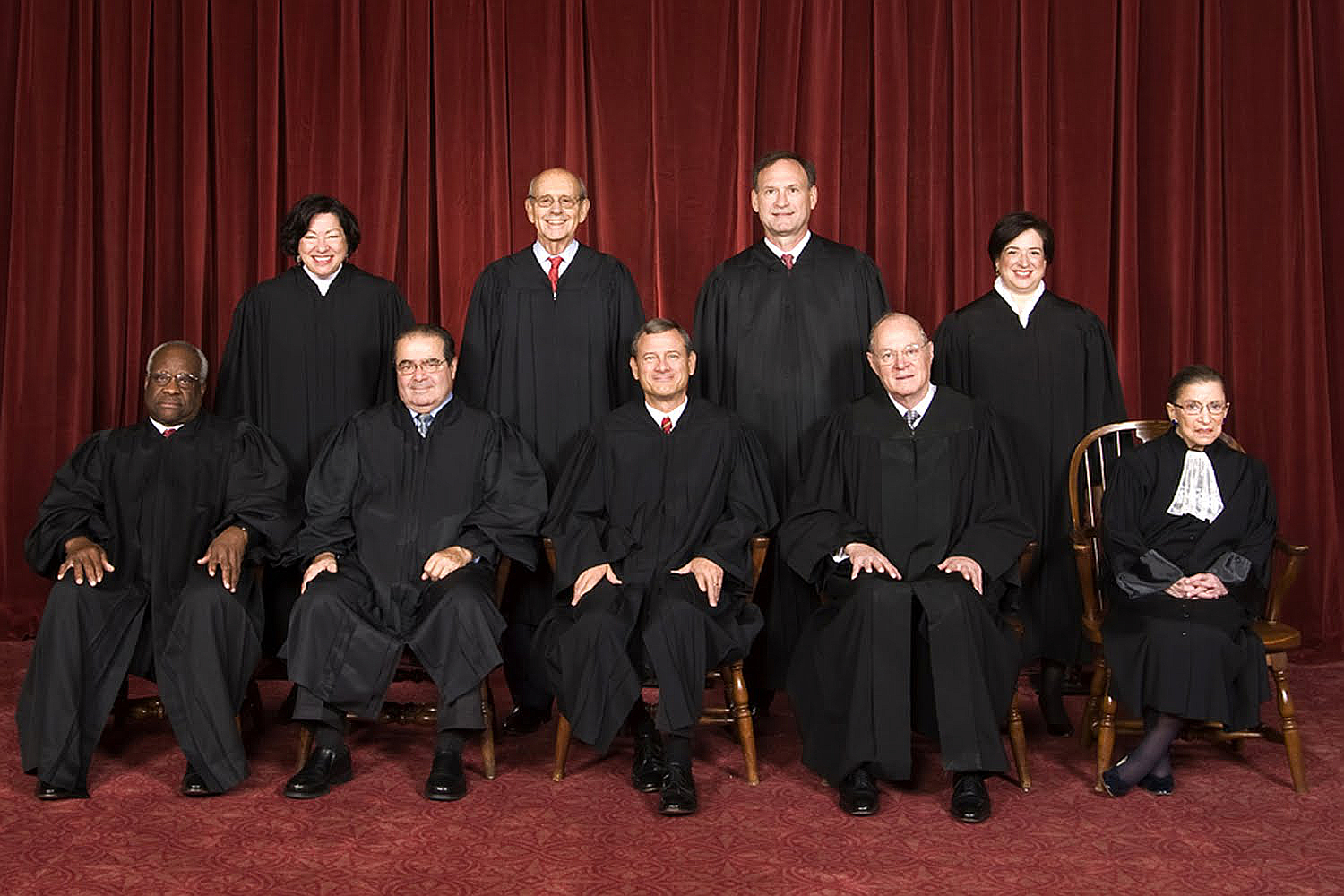In a 5 to 4 decision, the Supreme Court has ruled that closely held corporations cannot be forced to provide contraception coverage, or be required to do anything else that may violate the religious beliefs of the owners, shareholders, or employees. Keep in mind that Hobby Lobby does provide contraception coverage for their employees, just not via the abortifacient methods that they said violated their conscience for religious reasons.
Having said that, this is a lengthy court opinion, penned by Justice Samuel Alito. It will take some time to go through. Justices Alito, Roberts, Thomas, Kennedy, and Scalia voted with the majority, while Justices Ginsberg, Sotomayor, Kagan, and Breyer dissented.
Here is the short take from SCOTUS Blog,
“The majority opinion, by holding that the nonprofit accommodation is a less restrictive means for accommodating closely held for-profit business suggests (at least to me) that the non-profits who object to that process (because they don’t want to have to certify that they object to providing contraceptive coverage) are in trouble. Seems unlikely the Court would say that this is a less restrictive means in this case, only to later hold that it is unconstitutional. But that’s a very quick reaction.
Here is the link to the opinion.
One of the tidbits from the decision is about the accommodation provided by the HHS Mandate.
“That accommodation does not impinge on the plaintiffs’ religious beliefs that providing insurance coverage for the contraceptives at issue here violates their religion and it still serves HHS’s stated interests.”
So, Hobby Lobby won, but it may be a qualified win. Stay tuned for what it all means.
UPDATES:
From the ruling,
HHS argues that the companies cannot sue because they are for-profit corporations, and that the owners cannot sue because the regulations apply only to the companies, but that would leave merchants with a difficult choice: give up the right to seek judicial protection of their religious liberty or forego the benefits of operating as corporations. RFRA’s (ed. The Religious Freedom Restoration Act) text shows that Congress designed the statute to provide very broad protection for religious liberty and did not intend to put merchants to such a choice. It employed the familiar legal fiction of including corporations with RFRA’s definition of “persons,” but the purpose of extending rights to corporations is to protect the rights of people associated with the corporation, including shareholders, officers, and employees. Protecting the free-exercise rights of closely held corporations thus protects the religious liberty of the humans who own and control them.
****
HHS and the dissent nonetheless argue that RFRA does not cover Conestoga, Hobby Lobby, and Mardel because they cannot “exercise . . . religion.” They offer no persuasive explanation for this conclusion. The corporate form alone cannot explain it because RFRA indisputably protects nonprofit corporations. They offer no persuasive explanation for this conclusion. The corporate form alone cannot explain it because
RFRA indisputably protects nonprofit corporations.
Statement from the Eternal Word Television Network (EWTN) Chairman and Chief Executive Officer, Michael P. Warsaw,
EWTN is extremely pleased with today’s Supreme Court decision in the Hobby Lobby case. The fact that the Court believes that the government has less restrictive means of accomplishing its goals is very helpful. However, it remains unclear whether this decision addresses the serious objections that EWTN has raised with regard to the government’s “accommodation” scheme for nonprofit faith-based organizations. We are consulting with our legal team to determine how this significant decision applies to EWTN and our pending case before the courts.
A video statement from the Greens,
Video Special Report from EWTN,
From the White House (via AP): Will work to make sure women affected by ruling will have access to contraception.
From the wires (beware misleading headlines):
The Washington Post: Supreme Court sides with employers over birth control mandate.
The Wall Street Journal: Supreme Court Makes Religious Exception to Health-Care Law (pay).
Los Angeles Times: Supreme Court rules on contraceptives; setback for Obama healthcare law.
NBS News: Hobby Lobby Ruling: Employers Don’t Have to Cover Birth Control.
Let the op-eds begin!
Politico: SCOTUS sides with Hobby Lobby on birth control.
The American Conservative: Hobby Lobby Has Won, But Have We?
And from the shoot the messenger department, it’s all the fault of SCOTUSblog?
Twitchy: Sandra Fluke is flummoxed.












